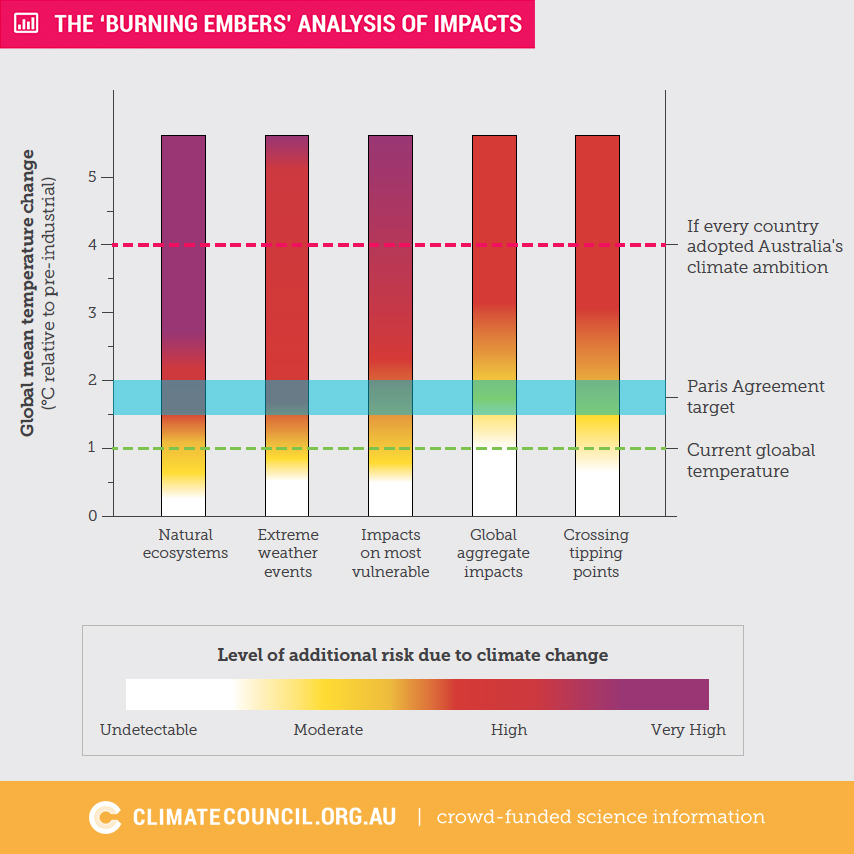This content is more than 6 years old
UPDATE: please see media release here.
Australia’s critical window of opportunity to tackle climate change is closing, with a new landmark report from the Climate Council revealing our nation is falling behind the rest of the world, failing to tackle climate change as pollution levels continue to rise.
The ‘Critical Decade 2017: Accelerating Climate Action’ report, shows Australia is highly vulnerable to many consequences of a changing climate, from worsening heatwaves, droughts and bushfires, to devastating coral reef bleaching, while most of the nation’s population centres are also highly exposed to sea level rise.
CLICK HERE TO DOWNLOAD THE REPORT
DOWNLOAD THE INFOGRAPHIC
KEY FINDINGS:
- Australia is failing to tackle climate change with emissions rising and a lack of any coherent, long-term national approach to reduce emissions in the short, medium or long term. We are known as a global climate laggard.
- Failure to rapidly and deeply reduce greenhouse gas emissions increases the risk of deteriorating human health and well-being, massive forced migration and conflict, crippling economic damage around the world, and the Earth’s sixth great extinction event.
- Australia is highly vulnerable to many of the consequences of a changing climate, from worsening heatwaves, droughts and bushfires, to devastating coral reef bleaching, and most of our population centres being exposed to sea level rise.
- Amongst the G20 countries, Australia’s emission reduction target – a reduction of 26-28% on a 2005 baseline – is unusually weak, nowhere near what is required for us to play our fair share in meeting 2°C Paris target.
- Renewable energy has already replaced ageing, polluting fossil fuels as the energy system of the future, with the installation of solar and wind systems globally doubling every 5.4 years.
- Maintaining this rate of renewable expansion could see the world’s energy systems completely eliminate greenhouse gas emissions by 2040.

